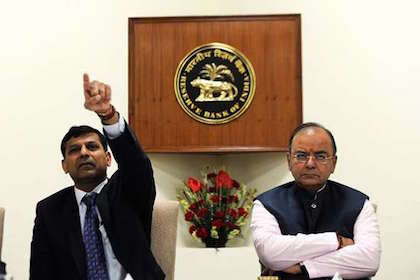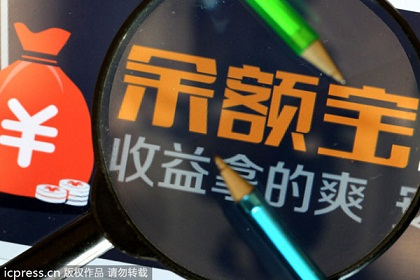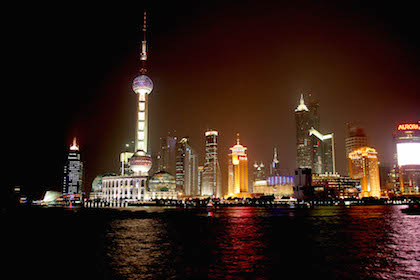India-U.S. $1 trillion: Silicon Swadesh
The following is an excerpt from the book 'India-U.S:$1 trillion by 2030' by Nish Acharya, Visiting Fellow at Gateway House
The following is an excerpt from the book 'India-U.S:$1 trillion by 2030' by Nish Acharya, Visiting Fellow at Gateway House
 Courtesy: Jitender Gupta
Courtesy: Jitender Gupta
The revised Indian Financial Code brings some alterations to governance within the RBI. At the heart of these changes is the belief in a popular myth that lower interest rates will lead unquestionably to higher economic growth
 Courtesy: yesow.com
Courtesy: yesow.com
The new guidance on the development of internet finance in China provides insight into the future of China's pioneering internet finance industry and the defining role it will play in the country's economic reform process
 Courtesy: Wikipedia
Courtesy: Wikipedia
Prime Minister Narendra Modi’s recent visit to Central Asia is an important moment for Indian business to increase its presence in the region. Before doing so, it must consider the region’s geopolitical and security challenges—but once past these hurdles, the region has many investment opportunities
 Courtesy: Shutterstock
Courtesy: Shutterstock
While all eyes are currently on Greece, the UK has plans to hold a referendum on whether to exit the European Union or a "Brexit". The potential of a "Brexit" has both short and long term implications on the UK's position as a financial hub and on Indian FDI into the UK
 Courtesy: Arun Sinha/Flickr
Courtesy: Arun Sinha/Flickr
If, after nine years, BRICS remains a disparate grouping, and its trade and investment flows remain dismal, it is time to explore new avenues of cooperation to consolidate the alliance—and culture and education can provide the necessary cementing factor when combined with the New Development Bank
 Courtesy: Wikipedia
Courtesy: Wikipedia
The New Development Bank initiated by BRICS countries can reform and democratise global economic governance. But to reach this goal, in this critical period when the bank is preparing to operationalise, it must formulate an innovative institutional design. This article outlines four guiding principles for such a structure
 Courtesy: Petroleum.nic.in
Courtesy: Petroleum.nic.in
The present pessimism about India’s dipping exports is a misreading of the numbers—the country’s exports have fallen because of the lower price of petroleum, and not due to any slowdown in industrial activity or reduced demand from foreign markets
 Courtesy: Madaki/Wikimedia Commons
Courtesy: Madaki/Wikimedia Commons
After respite from the U.S. government, Cuba now faces the daunting task of reviving its economy without having to give up on its political ideology. The Singaporean model of limited democracy is something Cuba could emulate.
 Courtesy: Peter Craven/Wikipedia
Courtesy: Peter Craven/Wikipedia
A distinguished Chinese scholar, speaking at a BRICS forum in Moscow recently, ascribed the growing India-China trade deficit to India’s ban on iron exports. While this contention is partially true, the data does not validate this argument, and nor does his view account for the other reasons for the deficit